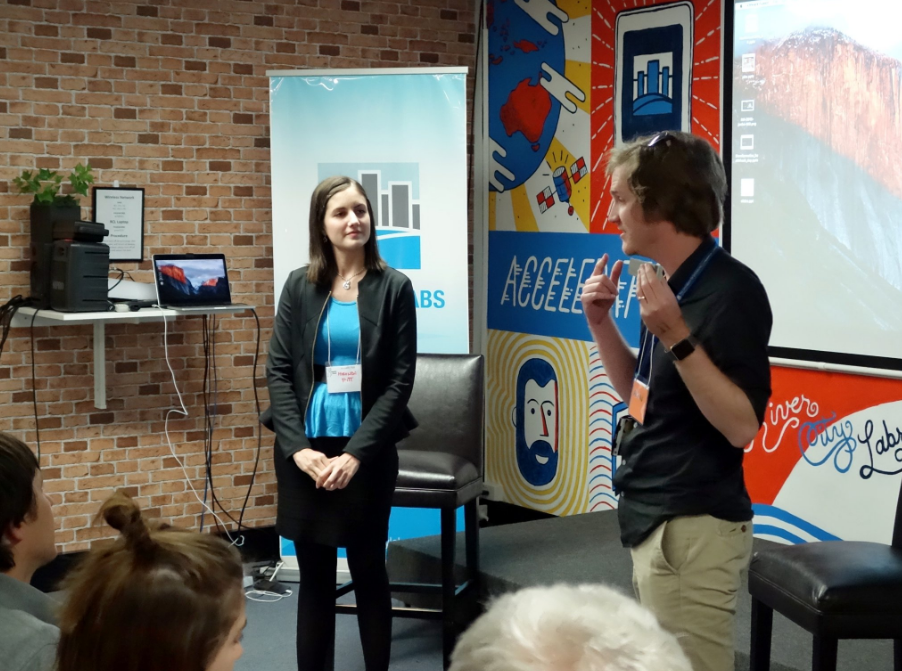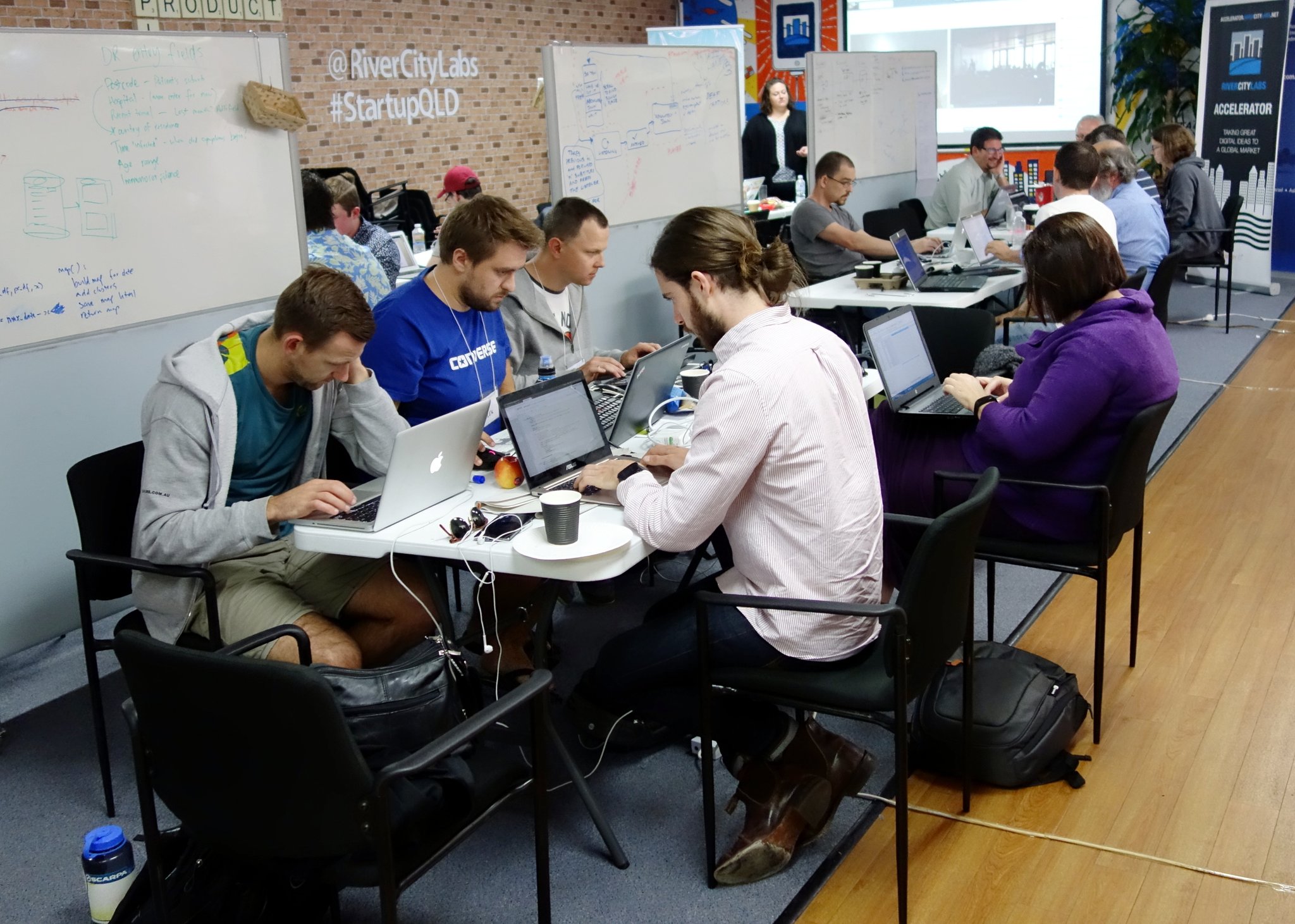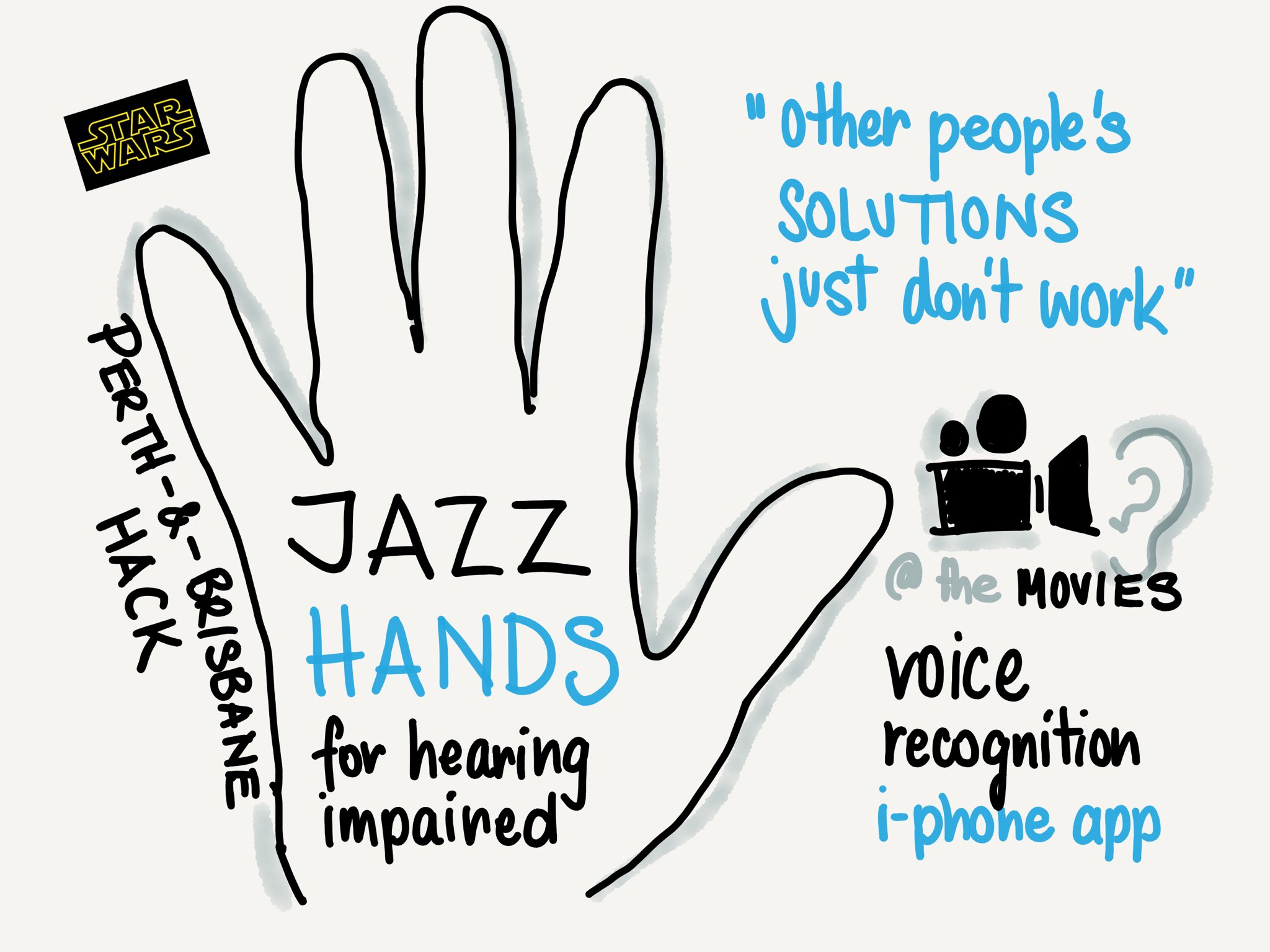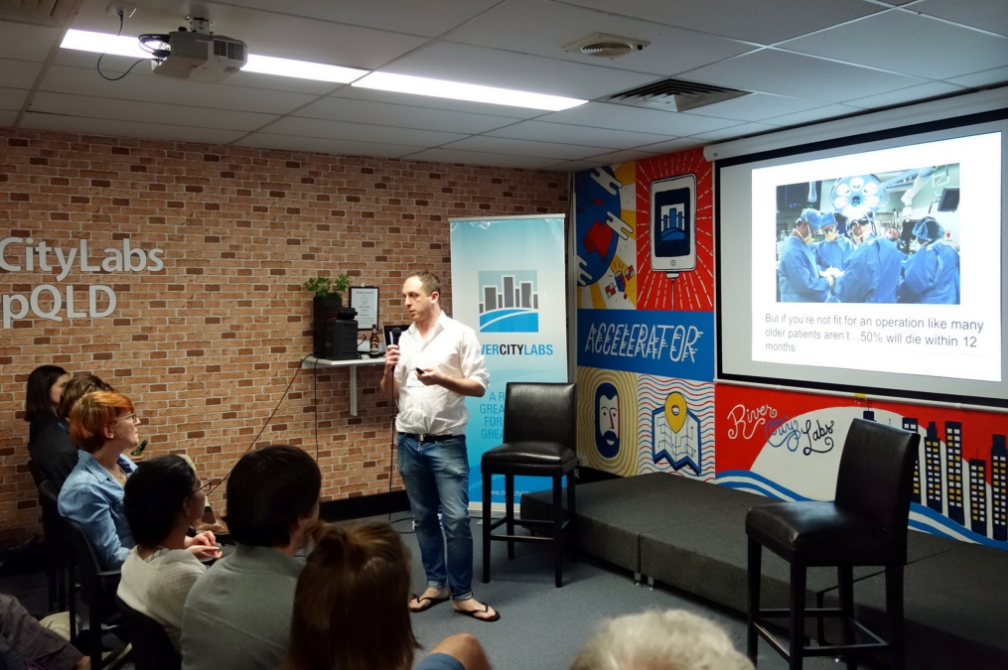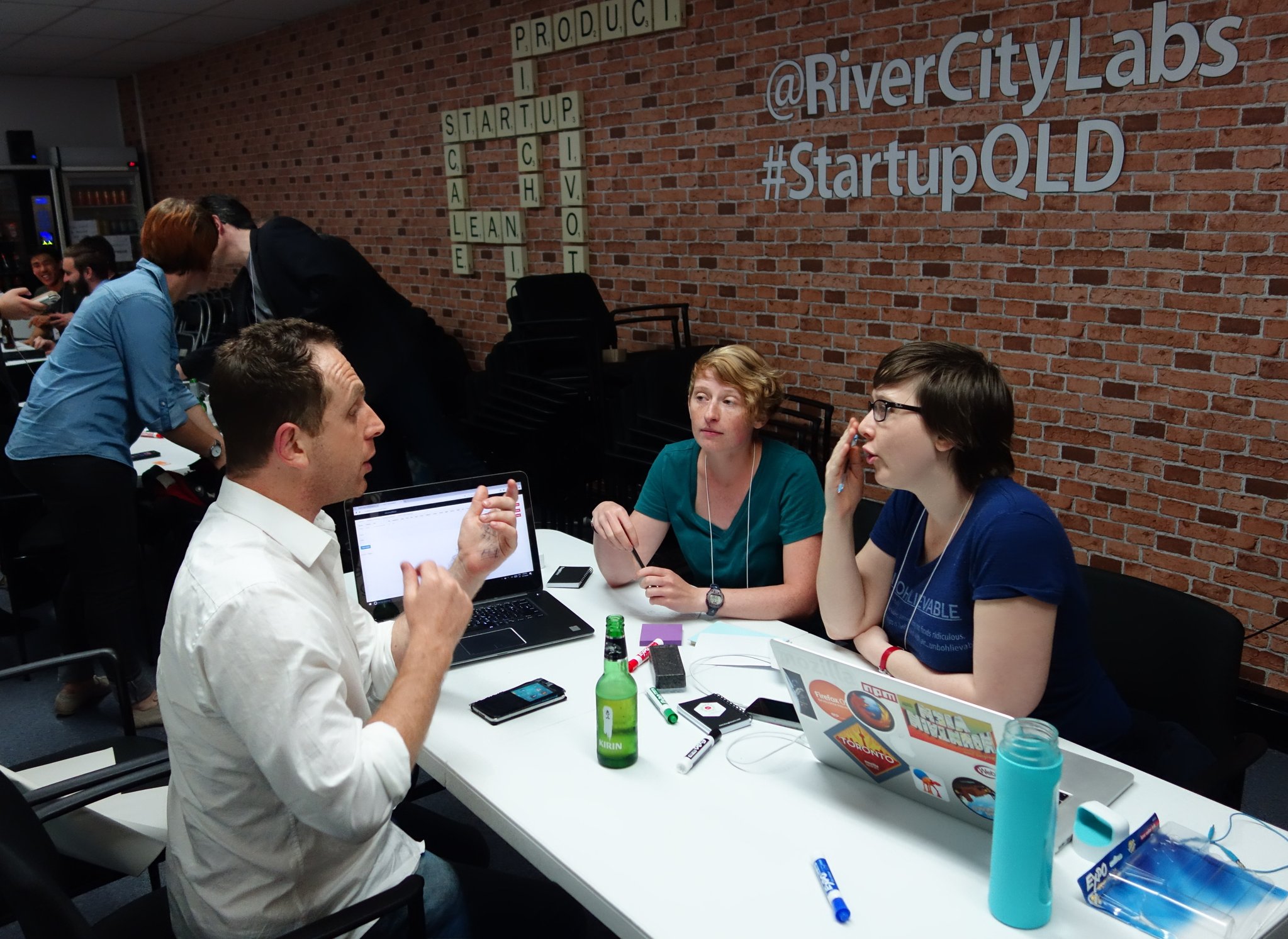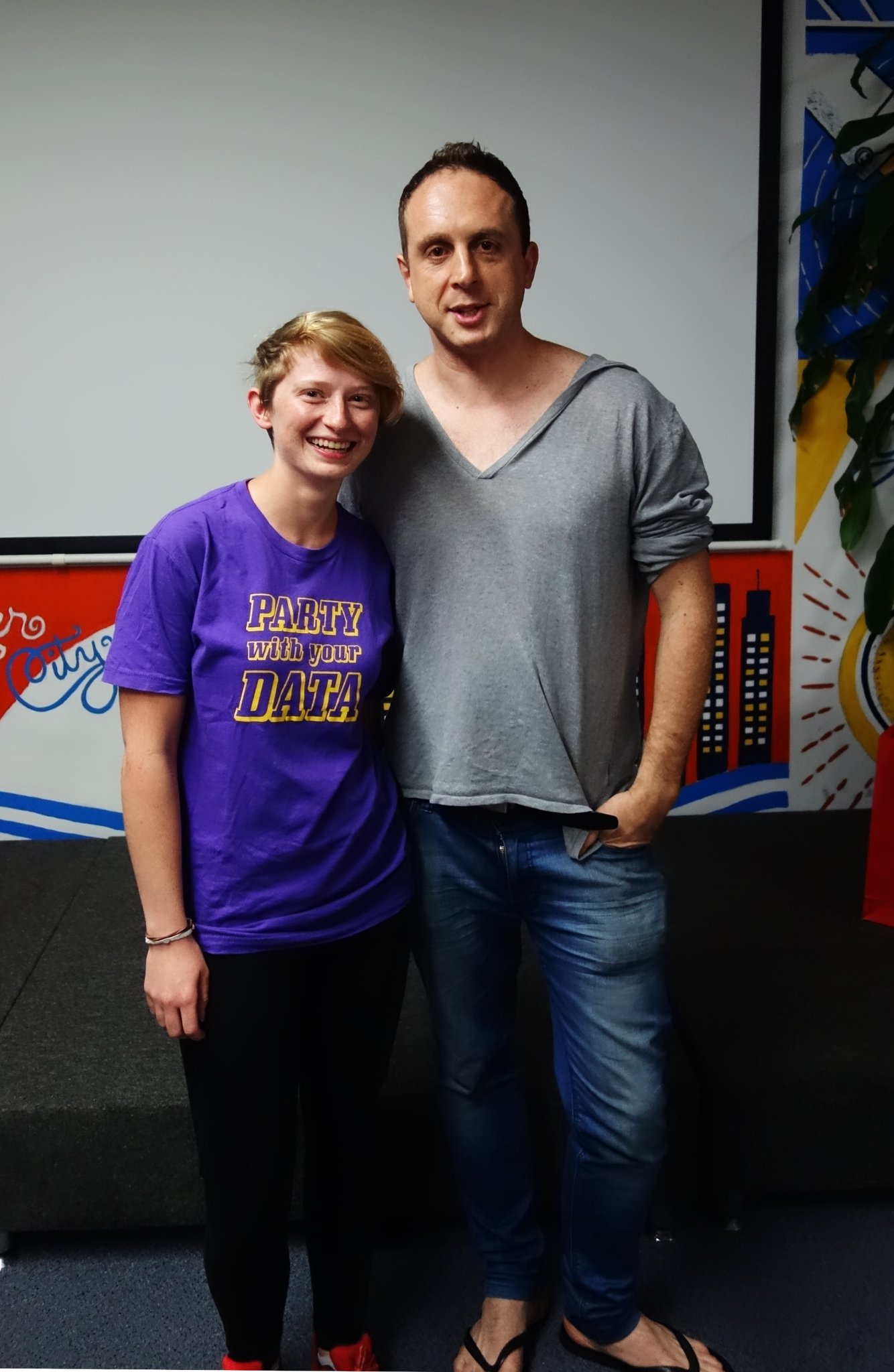The HealthHack 2016 Brisbane event was held at River City Labs. It ran from Friday night to Sunday afternoon (14-16 Oct 2016).
HealthHack is a different hackathon event in that it brings the problems to the hackers. There’s no need to validate the market or the value proposition as the problems come from researchers and staff working in the health & sciences fields.
Whatever team you end up working on you know that what you’re doing is important.Whatever you can do to aid in solving your team’s problem is guaranteed to make a big difference out in the real world.
Every team did something interesting and valuable at HealthHack and I’d encourage you to check out the HealthHack website to see the details of all of these.
I’ve focused only on the winners from the Brisbane event here, but the prizes are only there as icing on the cake. The real rewards are working on the problems themselves and working with the problem owners. That’s what I really love about HealthHack: No matter what happens everyone ends up winners.
Speaking from the point of view of someone who was part of a team that didn’t win anything this year, but who was part of the team that took out first place last year, I can honestly say the satisfaction I got from both events was the same.
I have some other posts if you want to read more about our team’s experience at HealthHack or the solution that we pitched.
image courtesy of Dr Sue Pillans
image courtesy of Dr Sue Pillans
Super Friends Against Superbugs
Problem Pitch
Using the newly developed thumb drive-sized MinION genome sequencer and the fast results it provides, Miranda and Alan pitched a project to track the spread of antibiotic resistance in real time. You can see a detailed explanation of the problem on the HealthHack website.
image courtesy of Dr Sue Pillans
image courtesy of Dr Nick Hamilton
Working on the project
This was a really ambitious & talented team and they worked on a lot of different features that leveraged the MinION device data. They ended up delivering prototypes for most of them.
image courtesy of Dr Nick Hamilton
image courtesy of Dr Nick Hamilton
Final Pitch
The Superbugs team came up with a prototype web app that generated reports for medical staff and displayed outbreaks on a map. Most of all they significantly improved the speed at which this was able to be done as compared to the existing systems. It was no surprise they took out first place.
image courtesy of Dr Sue Pillans
image courtesy of Dr Nick Hamilton
Jazz Hands
Problem Pitch
The problem Julian Scharf pitched was taking the existing subtitles device provided by movie theatres for deaf people into an app. The problem was coming up with a alternative solution for cueing the subtitles to match the movie that was being played on the theatre screen on a device that was less obtrusive and more accessible than what is currently used (your own phone). “Jazz Hands” is sign language for applause, a very appropriate team name for this project.
image courtesy of Dr Sue Pillans
image courtesy of Dr Nick Hamilton
Working on the project
This team worked in co-operation with another team in Perth who had formed around the same problem (which had been pitched over there as well). They were the only team spread over two locations at HealthHack.
image courtesy of Dr Nick Hamilton
Final Pitch
The team got a prototype app working that used voice recognition to help identify the place to cue the subtitles so they would be in-sync with the movie playing. They bravely did a live demo in their pitch and….it worked! They were a very popular second place.
image courtesy of Dr Nick Hamilton
image courtesy of Dr Sue Pillans
Hungry Cells “Saving Grandpa”
Problem Pitch
Jerome Goldstein pitched finding a way to manage cardiology patients and their data more efficiently. Currently the management of patient progress through the various stages of cardiology treatment is kept in a series of Excel spreadsheets which need to be manually updated as new information is collected. You can see a detailed explanation of the problem on the HealthHack website.
image courtesy of Dr Nick Hamilton
Working on the project
This was one of the smallest teams at HealthHack, but they still managed to produce quite a lot over the weekend.
image courtesy of Dr Nick Hamilton
image courtesy of Dr Nick Hamilton
Final Pitch
The team delivered a working database to replace the current spreadsheet so that patient information could be updated and accessed securely and easily by all medical staff. The database they built they actually deployed on QLD health’s servers thus proving it could be used in production. They picked up a well deserved third place.
image courtesy of Dr Nick Hamilton
image courtesy of Dr Sue Pillans
Design Award winners
The Design Awards went to 5 teams: We've Got Guts, Stemflow, Urban Jungles, Super Friends Against Super Bugs, and Jazz Hands.
image courtesy of Dr Nick Hamilton
Spirit of HealthHack winners
Myself, Elliot Smith & Mark Promnitz won the Spirit of HealthHack awards.
image courtesy of Dr Nick Hamilton
Elliot's team spent the weekend dealing with a very difficult dataset that comprised individual brain map files which were terabytes in size. Combined with that the existing project had an enormous codebase that took ages for the team to compile before they could even get started. This problem had been brought to last year’s HealthHack and although it interested many people, the complexity of the dataset combined with the size of the images scared everyone off. Elliot’s team took maybe the hardest problem from this year’s HealthHack on.
image courtesy of Dr Sue Pillans
I didn’t find a team to join on the Friday so I spent the time going around to the teams and helping them work through their problems to try and see all the possible angles they could attack them from. On Saturday I joined up with a problem owner, Dr Kenan Kalayci, and a couple of other people who hadn’t found teams to do a project for the problem Kenan had brought to HealthHack; overcharging and overtreatment in the dental market. Throughout the hack, as well working with my team, I dropped in on other teams and talked over problems they were working through and offered up an alternative viewpoint to help them with their problems.
image courtesy of Dr Sue Pillans
image courtesy of Randall Austin
Mark ended up leaving the team he had originally come to HealthHack with to join the We've Got Guts team led by problem owner Jake Begun who wanted to track and predict disease activity in IBD (inflammatory bowel disease). The team originally didn’t have any coders so Mark joined them to help round out their skillset. Mark played a major role in the prototype they delivered and the final pitch. The team couldn’t have done it without him.
image courtesy of Randall Austin
image courtesy of Dr Sue Pillans
Supreme Coder winner
Thea Koutsoukis won the supreme coder award. She worked with the Hungry Cells team who picked up third place. The team ended up deploying a .NET application which Thea worked on. The interesting thing here is Thea had no .NET experience before this weekend but was still able to hack something together, that worked, over the weekend. A worthy supreme coder winner indeed.
image courtesy of Dr Nick Hamilton
Picture perfect
The pictures in this article came from a few sources. Each picture has a link in it out to the creator’s site except for those I took and those from the HealthHack promotional material.
Dr Nick Hamilton, find him on Twitter, Flickr & at UQ.
Sue Pillans, find her on Twitter and her at her website
Randall Austin, find him on Twitter
There’s lots more at Roisin McMahon’s Storify of the HealthHack Brisbane 2016 event to dig into if you are interested (aka you are interested; it’s very worth it).
HealthHack 2016 Sponsors - Thank you!
Of course none of this would have been possible without the sponsors. Thanks to all of them for making HealthHack happen. Please check them out via the links below.
Itoc, River City Labs, ThoughtWorks, RCC, BlueChilli, Canva, Queensland Government, UQ Institute for Molecular Bioscience, Amazon Web Services, QCIF, iLab at UQ, Data61, Open Knowledge, JetBrains, GitHub, YOW! Australia




